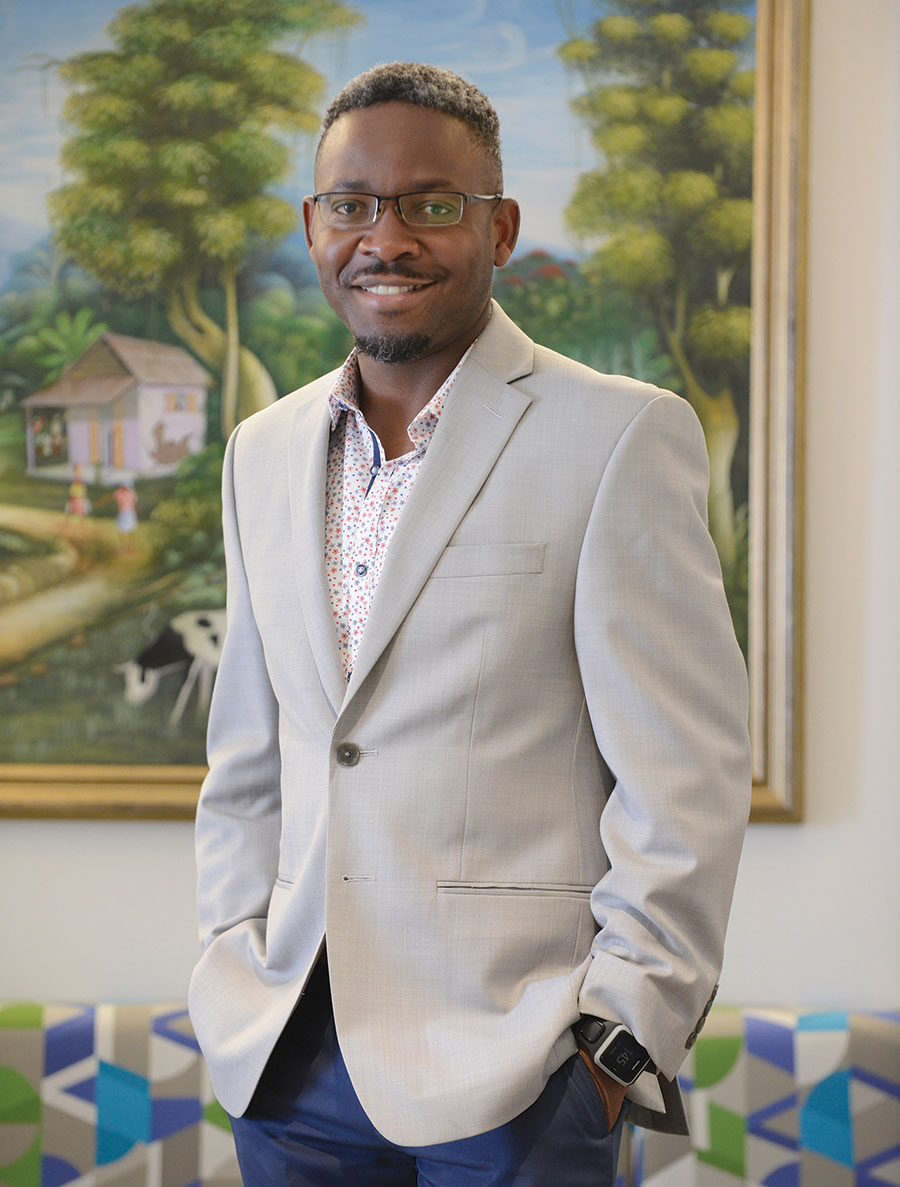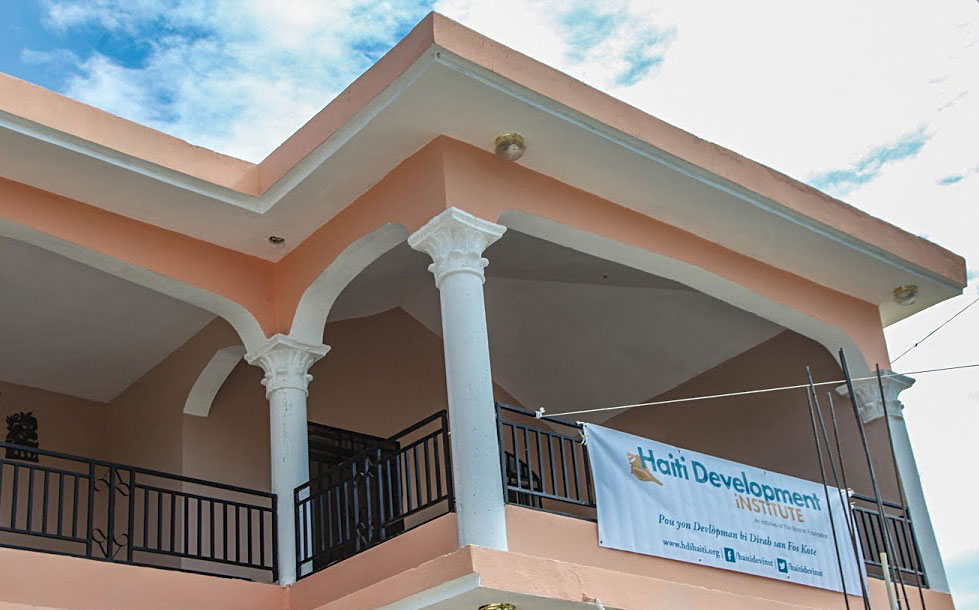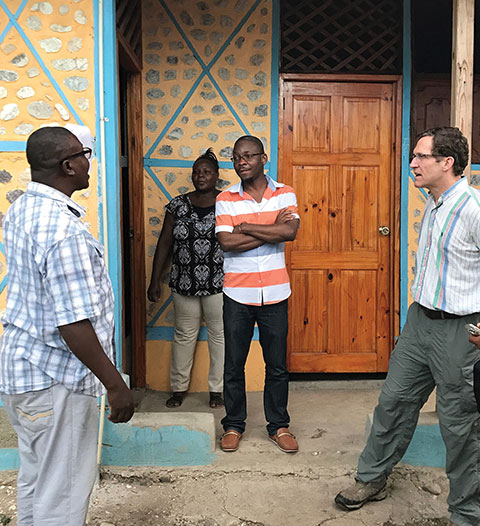Closing the “Capacity Gap” on the Ground in Haiti
Following the devastating earthquake in Haiti in 2010, the Boston Foundation and its donors responded swiftly by establishing The Haiti Fund, a five-year effort to support human rights and reconstruction efforts in Haiti. The Fund made 140 grants totaling more than $2 million in Haiti and Greater Boston—home to the country’s third-largest Haitian community—and supported advocacy work for and in Haiti.
After five years, so many lessons had been learned about the power of working with locals in Haiti that a permanent organization, the Haiti Development Institute (HDI), was formed as a special initiative of the Boston Foundation to expand and deepen the work.
Today, HDI is at an important crossroads, reports Executive Director Pierre-Andre Noel, just back from a month in Haiti. It has recently registered as a nonprofit with the Haitian government and cut the ribbon on its new headquarters in Arcahaie, a coastal city of around 198,550 people, 25 miles northwest of Port au Prince. HDI is staffed with eight employees in Haiti and two in Boston.
This is also a key moment because HDI has received more than $1.6 million from the W.K. Kellogg Foundation to fuel its work. HDI’s focus is on delivering programs while it builds itself into an important and historic organization in Haiti. Not unlike the Boston Foundation, it fills several roles: investing in nonprofits and helping to build their capacity; engaging in research and policy efforts while convening people for challenging conversations about the future; providing space and resources as a center of information; and serving as a philanthropic intermediary and advisor.
These functions are all linked and coordinated. “Even as we advise funders and introduce them to organizations they may want to support, we are improving those organizations through capacity building,” Noel offers as an example.
It is this capacity-building effort and the focus on local leadership that sets HDI apart from the many project-based nonprofits that have swept in and out of the country, especially following natural disasters. Funders say they’d like to work with locals but they fear the “capacity gap.” So they fund projects that are led and equipped by outsiders; when they are done they leave and that’s that. The funding skips the local economy.
“The legal and fiscal framework is missing in Haiti now,” Noel acknowledges. “We have long-term work ahead to build a strong civil society, which is our end goal. The only way to make a dent, though, is to have strong, locally-led institutions on the ground in Haiti. We believe that organizations and leaders can change communities. And communities can change systems. The best way to help is to give them the tools and skills, information and other support as they build these communities.” Then, when outside NGOs or national agencies arrive and say, “Here are the plans we’re going to implement!” the local leaders will be able to step up and reply, “Well, here’s where we are now, here’s our vision and what we’re planning. How can you fit in?”
This scaled work is easily seen in an organization called CLES (Collectif de Lutte contre l’Exclusion Sociale), which began as a small community group in northern Haiti. In 2011, HDI gave a $15,000 grant to help develop a community rice-grinding mill. The next year, HDI gave a second grant to build a center where women merchants could stay when they came from afar to use the mill. The organization has grown from there and participated in HDI’s two-year capacity-building program. “At the end of that program, they had governance, financial management and planning skills, enabling them to get a major grant from the World Food Program and shortly after that a large European Union grant,” says Noel. They started with 19 employees and now have more than 100—and the trust of global funders—as they reinvigorate rice production in Northeast Haiti, providing a major market to area farmers.
Investing in these small community development organizations is beyond the capacity of large-scale funders. The very personal due diligence required in light of the missing legal/fiscal framework doesn’t match their scope of operations. But these funders can support HDI in good confidence, and thus HDI serves as an intermediary. HDI has recently issued an RFP to rural, locally-run organizations for grants to be distributed out of $200,000 and already has 40-some responses.
There is no end to the work ahead, but under Pierre Noel’s calm and thoughtful leadership, HDI’s next stage will be ground-breaking and, one hopes, replicable. Noel reflects on HDI’s approach and origins: “We wouldn’t think this way if we hadn’t grown up here. We have seen the Boston Foundation method working here in Boston and it has been an inspiration: research-based, community-driven, long-term investments in people solving problems.”
He adds, “Seeing it work here where there are more resources, we think it can do wonders in Haiti, where resources are scarce, but the human potential is unlimited.”




